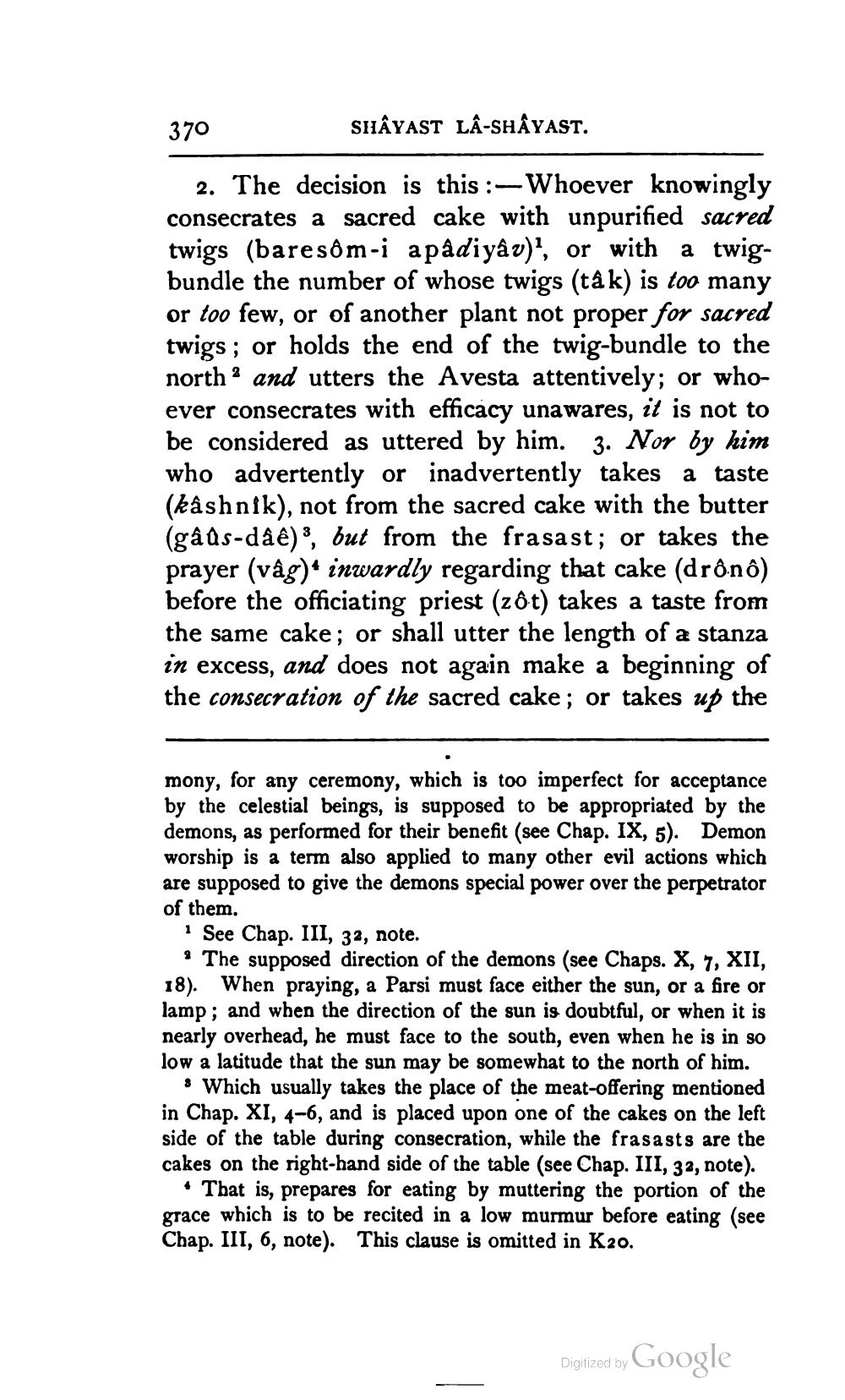________________
370
SHAYAST LÂ-SHẤYAST.
2. The decision is this :- Whoever knowingly consecrates a sacred cake with unpurified sacred twigs (baresôm-i apádiyâv)', or with a twigbundle the number of whose twigs (tâ k) is too many or too few, or of another plant not proper for sacred twigs; or holds the end of the twig-bundle to the north ? and utters the Avesta attentively; or whoever consecrates with efficacy unawares, it is not to be considered as uttered by him. 3. Nor by him who advertently or inadvertently takes a taste (kâshnik), not from the sacred cake with the butter (gâas-dae), but from the frasast; or takes the prayer (vâg)# inwardly regarding that cake (drônô) before the officiating priest (zôt) takes a taste from the same cake; or shall utter the length of a stanza in excess, and does not again make a beginning of the consecration of the sacred cake; or takes up the
mony, for any ceremony, which is too imperfect for acceptance by the celestial beings, is supposed to be appropriated by the demons, as performed for their benefit (see Chap. IX, 5). Demon worship is a term also applied to many other evil actions which are supposed to give the demons special power over the perpetrator of them.
See Chap. III, 32, note.
The supposed direction of the demons (see Chaps. X, 7, XII, 18). When praying, a Parsi must face either the sun, or a fire or lamp; and when the direction of the sun is doubtful, or when it is nearly overhead, he must face to the south, even when he is in so low a latitude that the sun may be somewhat to the north of him.
• Which usually takes the place of the meat-offering mentioned in Chap. XI, 4-6, and is placed upon one of the cakes on the left side of the table during consecration, while the frasasts are the cakes on the right-hand side of the table (see Chap. III, 32, note).
• That is, prepares for eating by muttering the portion of the grace which is to be recited in a low murmur before eating (see Chap. III, 6, note). This clause is omitted in K20.
Digitized by Google




